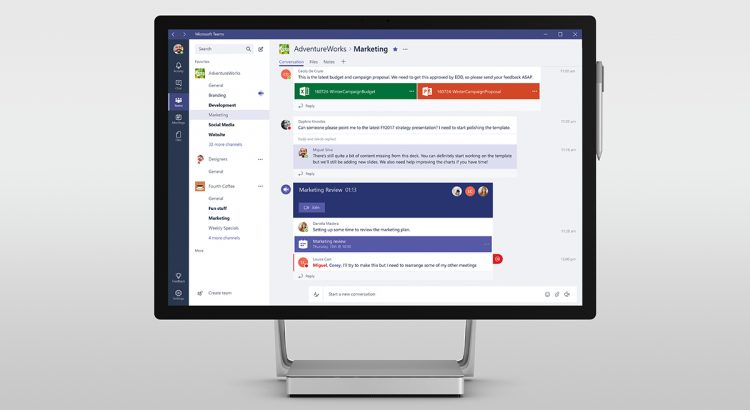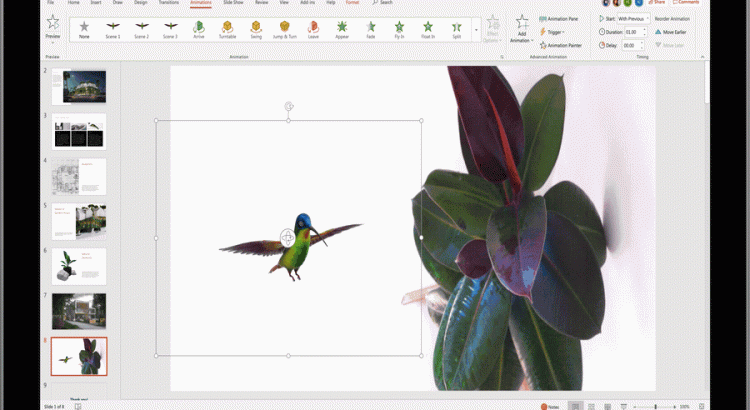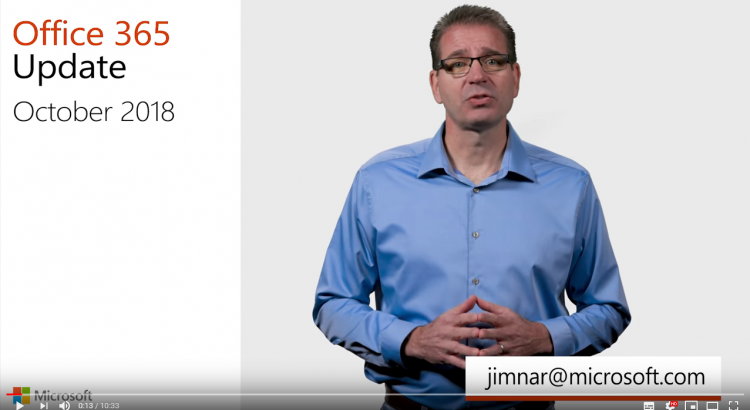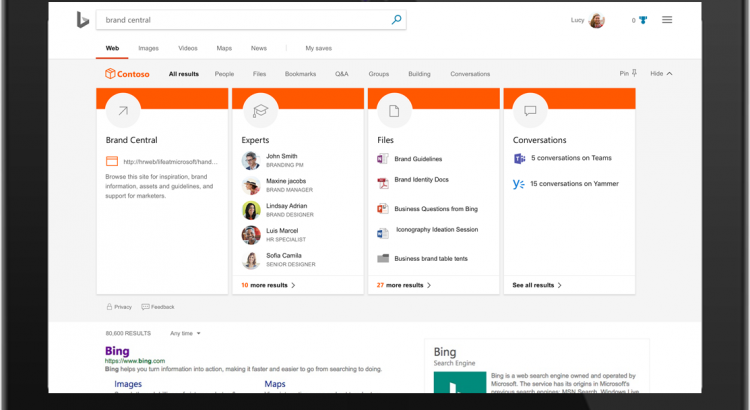Author: Marcel
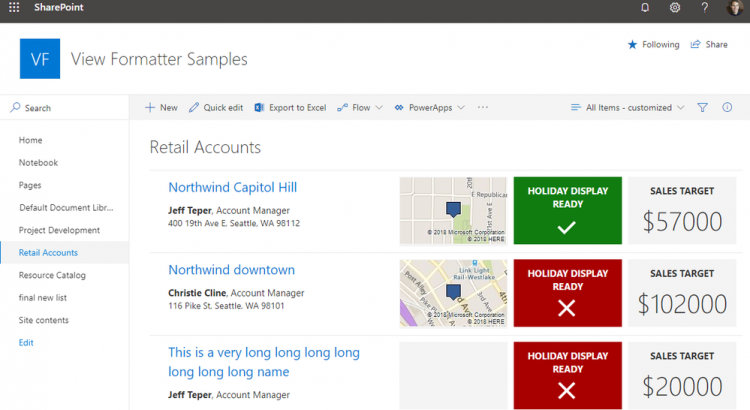
New SharePoint view formatting samples now available
publishing three new view formatting samples that you can use to jump start your own projects. The new samples demonstrate view formatting in document libraries and lists. They also demonstrate how to apply responsive designs to ensure the display looks great in desktop, tablet, and mobile devices as well as adjusting the layout appropriately when placed inside a web part on a page.
Each sample includes SharePoint site scripts, so you can quickly create the SharePoint lists and views that support the samples and try them out. And formatted views also work great inside SharePoint web parts or tabs on Microsoft Teams.
You can browse and download all these and more on the Microsoft 365 Resource Center.
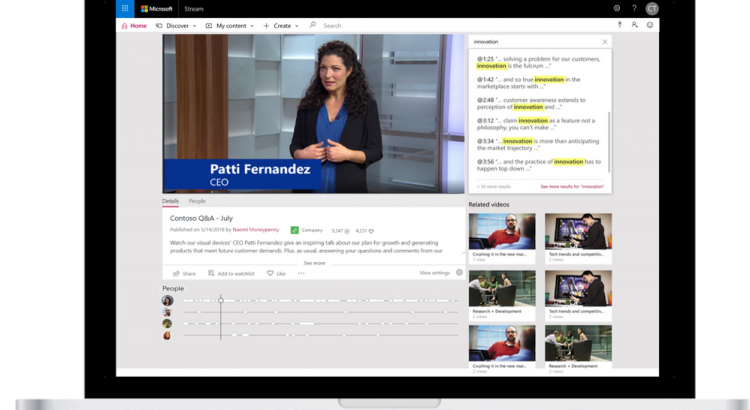
Microsoft Stream & Office 365 Video feature breakdown
This is a feature by feature breakdown comparing Microsoft Stream and Office 365 Video
https://docs.microsoft.com/en-us/stream/office-365-video-feature-breakdown
Lastest update: https://techcommunity.microsoft.com/t5/Microsoft-Stream-Blog/What-s-new-in-Microsoft-Stream-Ignite-2018-announcements/ba-p/260334
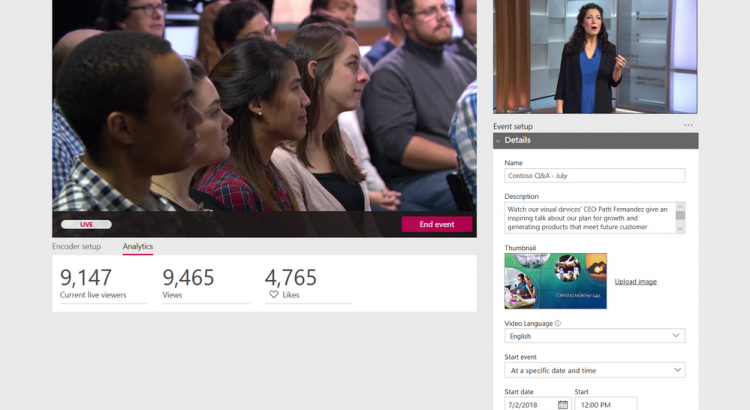
What’s new in Microsoft Stream – Ignite 2018 announcements
WATCH VIDEOS ON THE GO – EVEN WHEN YOUR OFFLINE
NEW CAPABILITES FOR DELIVERING LIVE EVENTS


What is new a Teams!
At Ignite, we announced a broad set of new capabilities that make Microsoft Teams an even more powerful hub for teamwork. We’ve got a lot of news to share, so grab your beverage of choice and settle in to learn what’s new in Teams across meetings, devices, calling, collaboration and app development.
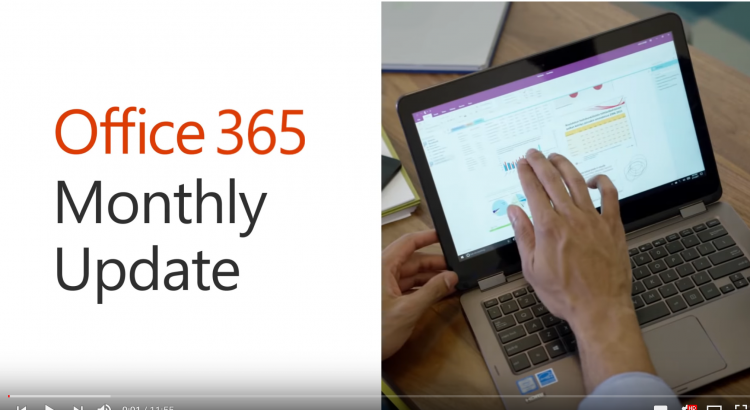
What’s new in Office 365 – September 2018
Jim Naroski covers recent enhancements to Office 365, Microsoft’s cloud-based productivity solution for the modern workplace. The course transcript, complete with all links mentioned, is available at https://aka.ms/o365update-blog.
This month’s topics: PowerPoint [0:18] Access [1:38] Teams [3:32] Power BI [5:55] Flow [7:31] Sharepoint [8:22] Security [9:41]
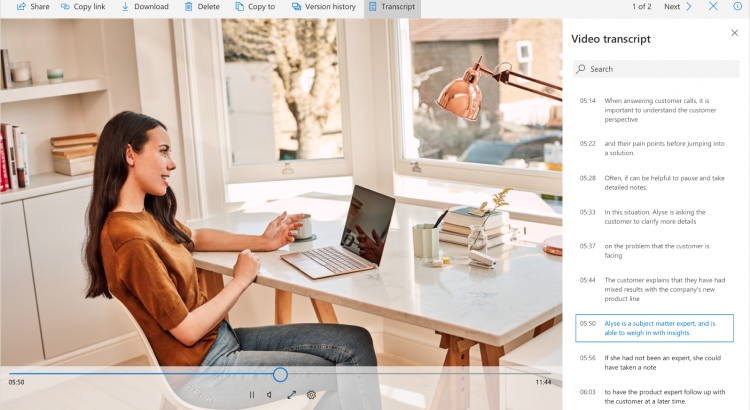
Microsoft 365 is the smartest place to store your content
- Video and audio transcription
- Searching audio, video, and images
- Intelligent files recommendations
Be more productive
- Video and audio transcription
- Searching audio, video, and images
- Intelligent files recommendations
- Make more informed decisions
File insights
- Intelligent sharing
- Data insights
Keep more secure
- OneDrive files restore
- Intelligent compliance

